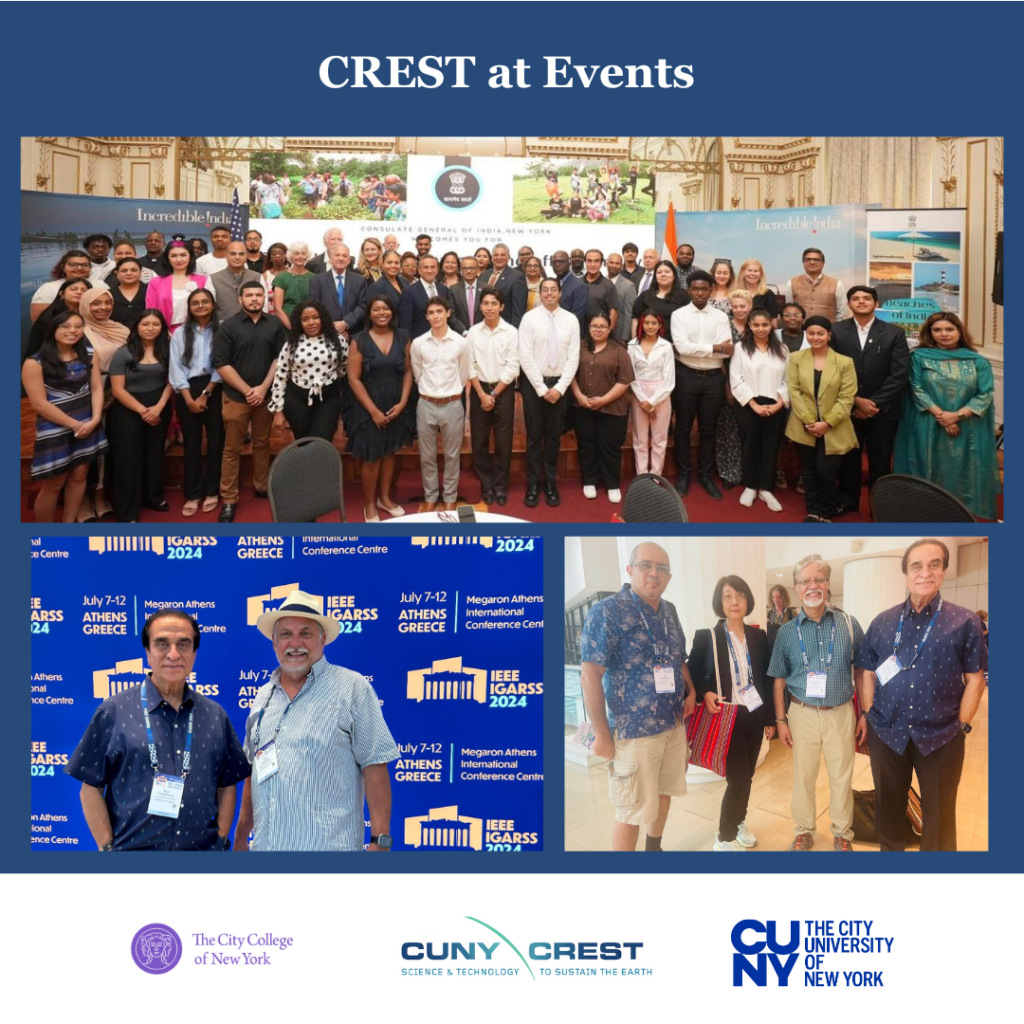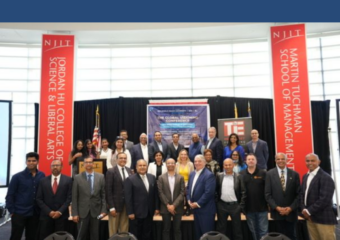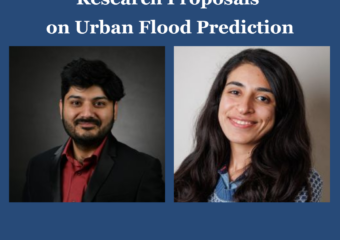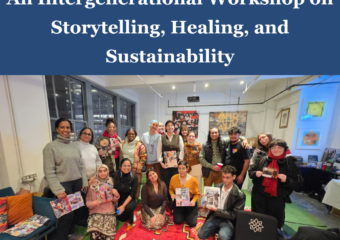CREST at Events
CUNY-India Study Abroad Program Send Off Ceremony
The Consulate General of India, New York hosted a send off ceremony for the third cohort of the CUNY-India Study Abroad Program on July 18, 2024 in New York. Dr. Reza Khanbilvardi, CREST Executive Director, Dr. Shakila Merchant, CUNY CREST HIRES Director, Dr. Neal Phillip, Co-Director of the CREST International Collaborations Pillar and Associate Director of the CREST Education & Training Pillar, Ms. Paramita Sen, Associate Co-Director of CREST international Collaboration Pillar, and Ms. Srishti Tyagi, CREST Communication Manager participated in the event.
The ceremony celebrated thirty-six students and faculty from CUNY (Bronx Community College, Lehman College, LaGuardia Community College, Brooklyn College, York College, Medgar Evers College, City Tech) who are part of the 2024 CUNY-India Study Abroad Program that took place from August 2 to 20, 2024. During the program, students actively engaged in Science, Technology, Engineering, and Mathematics (STEM), sustainability, and cross-cultural diplomatic activities in three states of India; Delhi, Odisha, and Maharashtra. They also gained the opportunity to explore various cultures and beautiful towns of India!
This ceremony is a great step forward to strengthen educational partnership between India and the US. CREST wishes the third cohort of the program the best on their journey!
44th annual International Geoscience and Remote Sensing Symposium
CREST leadership and scientists participated in the 44th annual International Geoscience and Remote Sensing Symposium of the IEEE Geoscience and Remote Sensing Society from July 7 to 12, 2024 in Athens, Greece. Over 2500 STEM professionals and scientists from Remote Sensing fields participated in the event
The theme of the symposium was Acting for Sustainability and Resilience and it focused on sustainable development goals aligned with the United Nations 2030 Agenda. The event provided a platform for the attendees to engage in training, discussions, debates, and more through publications, lectures, presentations, and forums specializing in remote sensing. Learn more here.
Dr. Reza Khanbilvardi, CREST Executive Director and Dr. Mitch Goldberg, CREST Research Scientist and NOAA CESSRST II Distinguished Research Scientist, Dr. Irina Gladkova and Dr. Wenge Ni-Meister, CREST Research Scientists attended the symposium as well as presented their ongoing research on topics related to remote sensing application. This was a great opportunity for the CREST team to showcase the collaborative efforts between CUNY and global research communities in advancing remote sensing technologies and applications.
Elaborating on his experience, Dr. Khanbilvardi said, “Learning the latest innovations in satellite remote sensing at this international conference has not only broadened our horizons but also strengthened our resolve to lead in innovation and collaboration. Together with my colleagues who attended this conference, we are more inspired than ever to harness the power of technology for a better tomorrow”.
Joint 31st International Laser Radar Conference & 22nd Coherent Laser Radar Conference
CREST attended the 31st International Laser Radar Conference (ILRC) together with the 22nd Coherent Laser Radar Conference (CLRC) in Landshut, Bavaria from June 23 to 28, 2024. CUNY CREST Scientist, Professor and Chair of Electrical Engineering, CCNY and NOAA EPP/MSI CESSRST II Director, Dr. Fred Moshary participated in the event along with world-class experts, researchers, and industry professionals in the field of laser radar technology. Dr. Moshary also served as the President, International Coordination Group on Laser Atmospheric Studies (ICLAS) and a member of the 2024 conference organizing committee of this event.
This event showcased significant advancements and emerging trends in the utilization of laser radar (LIDAR) systems across various sectors through presentations, panel discussions, case studies, and discussions. Dr. Moshary said, “There was a notable emphasis on the miniaturization of LIDAR components, making it feasible for integration into small-scale devices such as drones and autonomous vehicles. The development of compact, high-performance LIDAR units is expected to revolutionize applications in robotics and consumer electronics.”
The event also highlighted successful implementations in urban environments and complex traffic scenarios and LIDAR technology’s role in enhancing safety and navigation in autonomous vehicles. Further, new techniques and innovative technologies in environmental monitoring were discussed. Dr. Moshary said, “A key theme was the ongoing efforts to reduce the cost of LIDAR technology to make it more accessible for widespread commercial use. It was enriching to attend presentations that covered advancements in data processing algorithms and the use of artificial intelligence to enhance data analysis and interpretation”
Dr. Moshary believes that with promising advancements in sensor technology, data processing, and application diversity, the future of LIDAR appears both innovative and integral to the next generation of technological solutions. He said, “The conference also highlighted the ongoing need for collaboration and innovation to address the challenges and harness the full potential of LIDAR systems.”
It was a productive and promising event! Learn more here.




